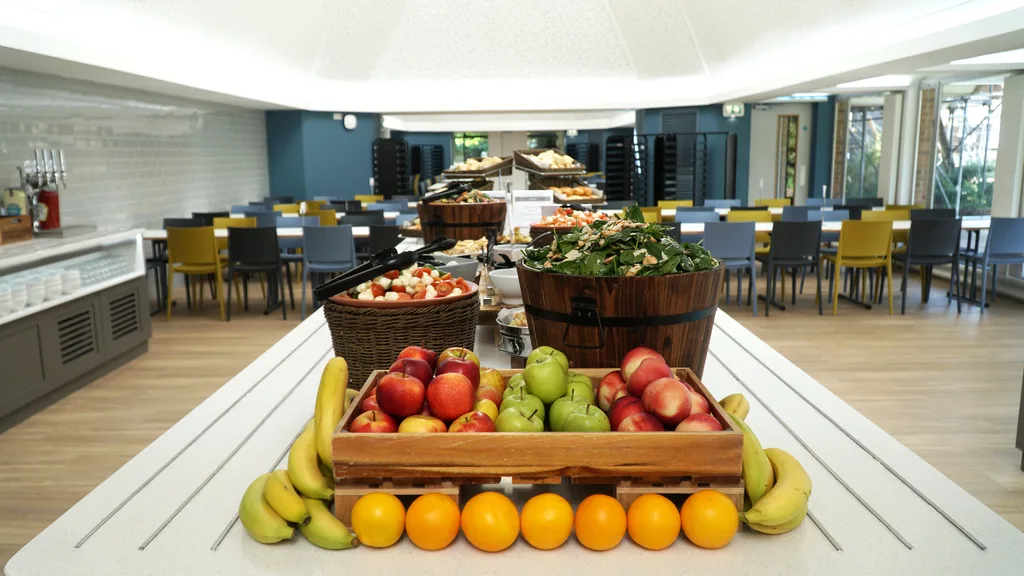
The King’s School in Macclesfield
Reducing food waste and promoting sustainability
We’ve embarked on a mission with The King’s School in Macclesfield to combat food waste and promote sustainable school catering. Through a series of initiatives, we’re fostering a culture of mindful eating, making sure valuable ingredients stay out of the bin.
Objectives
As well as reducing food waste, we want to help students understand why this is so important, by educating them on the impact of waste in school catering. We also aim to implement sustainable practices in food preparation and consumption – and to save costs through waste reduction.
Implementation
To achieve these objectives, we hold regular meetings with the school’s sustainability lead and student sustainability champions. Here we present food-waste data in an age-appropriate and relatable way, such as converting the weight into animal equivalents (for example, three elephants’ worth of waste). This approach helps students visualise the amounts, and understand the impact of food waste more clearly.
Engaging pupils is key to the implementation strategy. We encourage them to discuss food waste at assemblies, to monitor rubbish bins to identify the main items contributing to waste. Based on the data gathered, the school has reintroduced the 1, 2, 3 portion size guide. This is currently being tested by infants and juniors, with plans to expand it across the school.
Also, Colin, the Executive Chef, has completed a training course on creating zero waste from plants. Through this, he’s gained insights into maximising food use. This included using nearly every part of a butternut squash, drying the seeds for soups and salad toppings, and roasting the skin to add flavour and texture to dishes.
In the summer term, junior students take part in gardening sessions. This helps them understand the food-production process from start to finish. By showing pupils the hard work involved in growing ingredients, the school aims to instill a greater appreciation of food, making everyone reluctant to waste it.
Results
Monitoring and adjusting portion sizes based on waste data has proven highly effective. Using all the edible parts of ingredients is also working well. Financial benefits have come through quickly. For example, by reducing the amount of cucumber cut off the end, we save around 12 cucumbers a week. This amounts to around £543 a year.
The school community has enthusiastically embraced the sustainability message. The team reviews and adjusts menu items based on popularity. Managers encourage staff to serve appropriate portions.These initiatives have not only contributed to more-sustainable operations. It also had a generally positive impact on everyone within the school.

